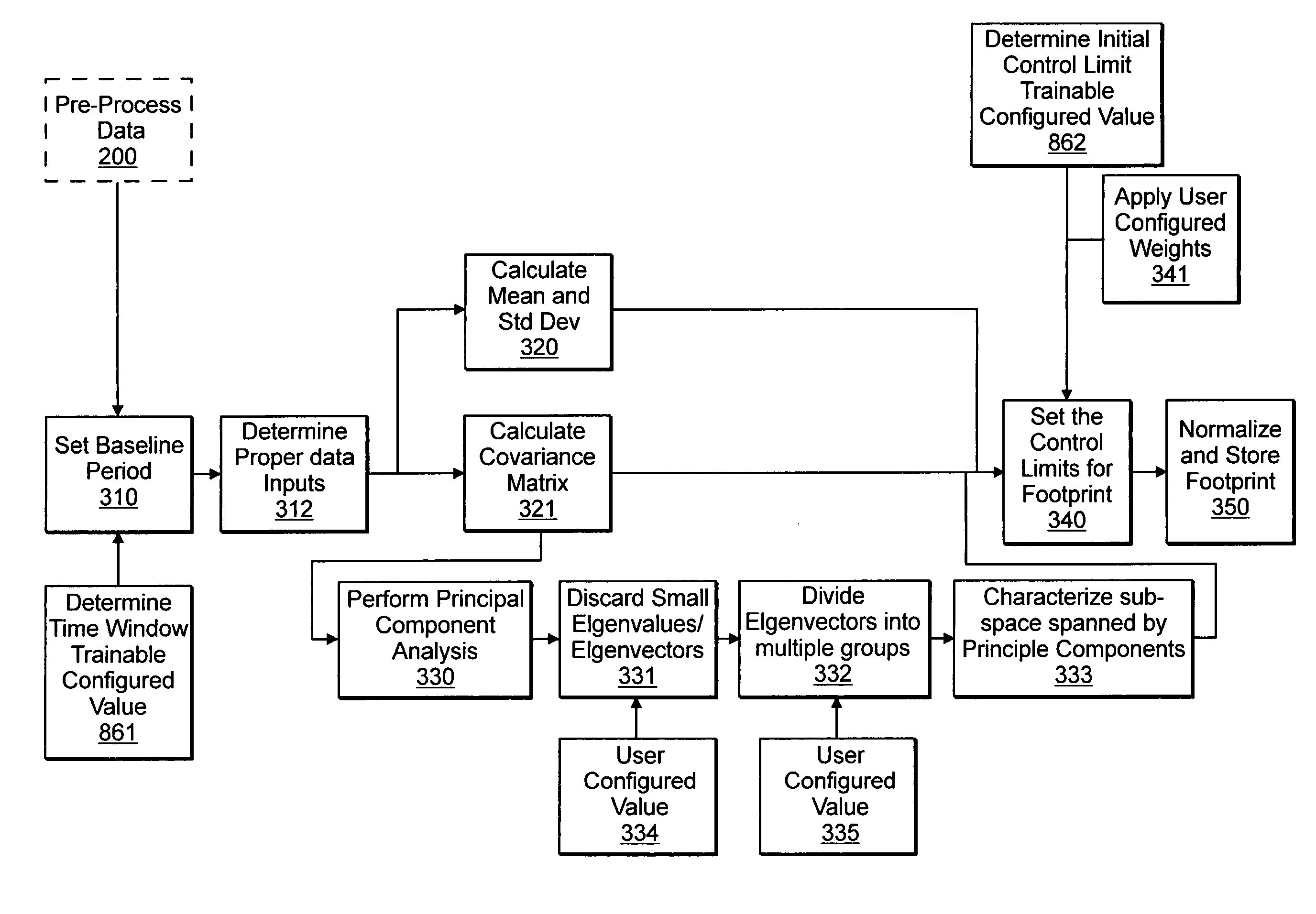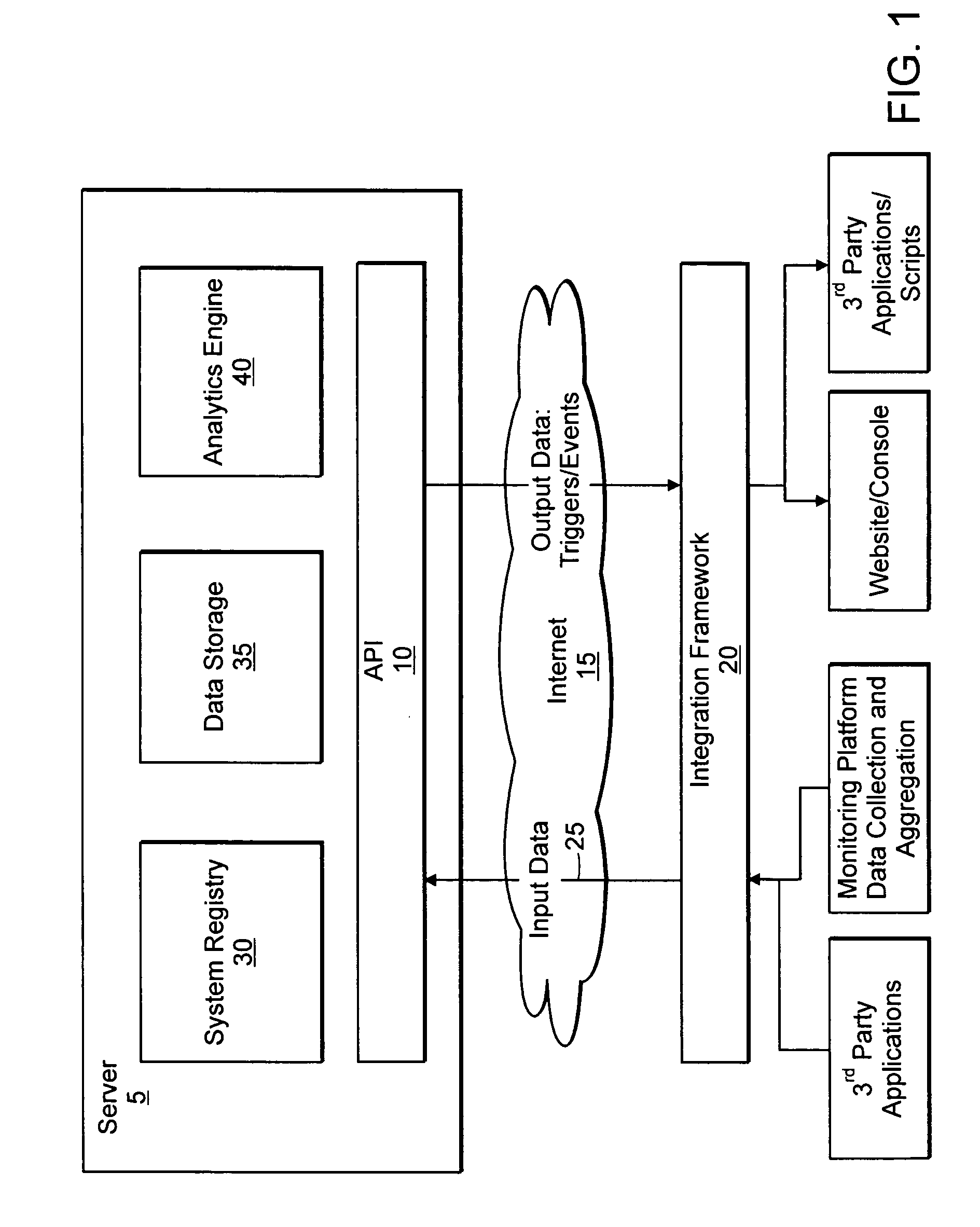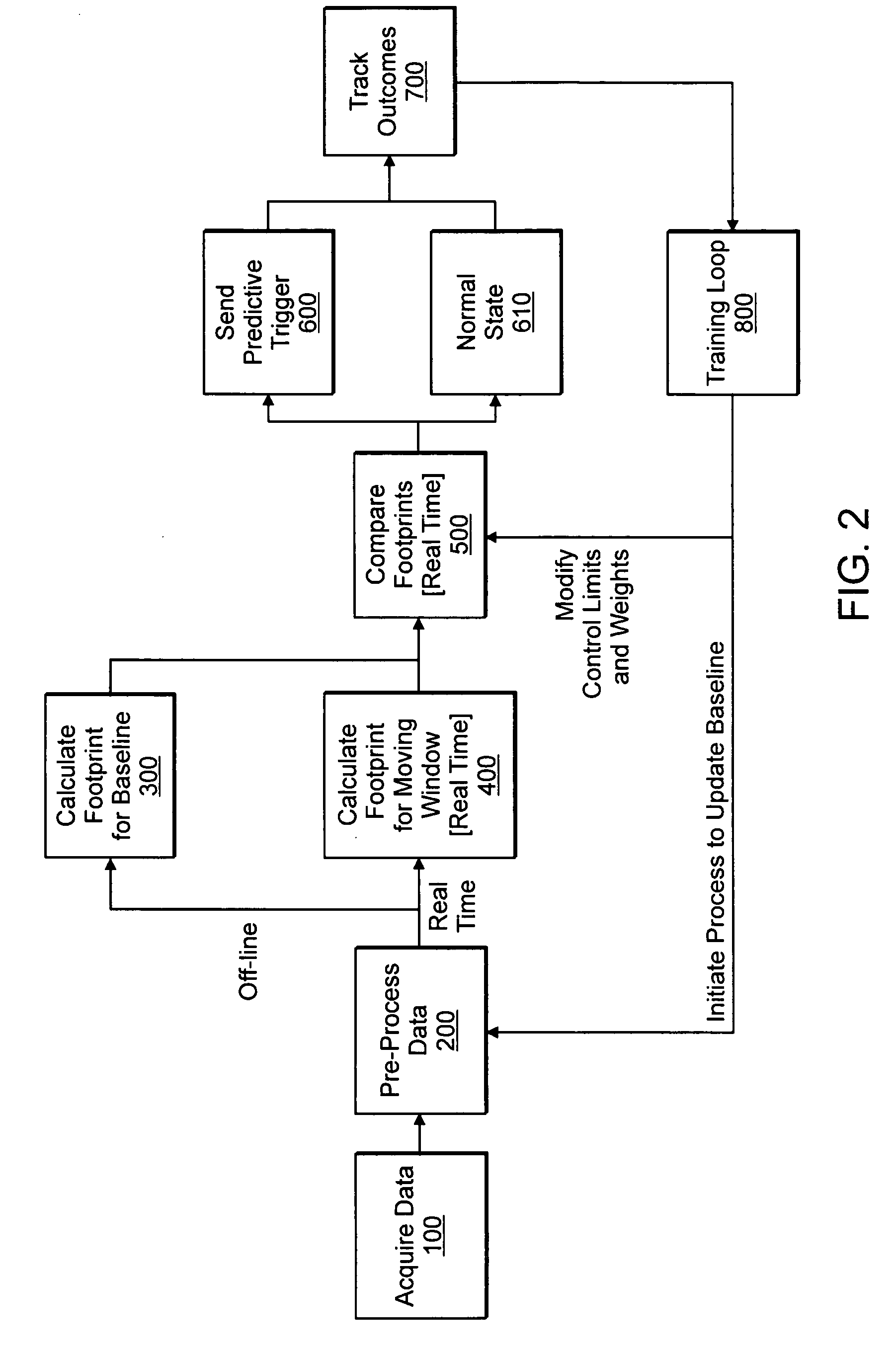System and method for monitoring performance of network infrastructure and applications by automatically identifying system variables or components constructed from such variables that dominate variance of performance
a network infrastructure and application technology, applied in the field of software and network system management, can solve problems such as the failure of software patches and updates within enterprise environments to be applied, the complexity of the production environment in which these software applications are being deployed has also increased, and the operator has to intervene. the problem of the failure of the application of software patches and updates, the problem of the production environment in which these software applications are being deployed, and the complexity of the problem of the production environmen
- Summary
- Abstract
- Description
- Claims
- Application Information
AI Technical Summary
Benefits of technology
Problems solved by technology
Method used
Image
Examples
Embodiment Construction
[0047] Preferred embodiments of the invention provide a method, system and computer program that simultaneously manages multiple, flexible groupings of software and infrastructure components based on real time deviations from an expected normative behavioral pattern (Footprint).
[0048] Footprint: Each Footprint is a statistical description of an expected pattern of behavior for a particular grouping of client applications and infrastructure components (Managed Unit). This Footprint is calculated using a set of mathematical and statistical techniques; it contains a set of numerical values that describe various statistical parameters. Additionally, a set of user configured and trainable weights as well as a composite control limit are also calculated and included as a part of the Footprint.
[0049] Input Data: These calculations are performed on a variety of input data for each Managed Unit. The input data can be categorized into two broad types: (a) Descriptive data such as monitored ...
PUM
 Login to View More
Login to View More Abstract
Description
Claims
Application Information
 Login to View More
Login to View More - R&D
- Intellectual Property
- Life Sciences
- Materials
- Tech Scout
- Unparalleled Data Quality
- Higher Quality Content
- 60% Fewer Hallucinations
Browse by: Latest US Patents, China's latest patents, Technical Efficacy Thesaurus, Application Domain, Technology Topic, Popular Technical Reports.
© 2025 PatSnap. All rights reserved.Legal|Privacy policy|Modern Slavery Act Transparency Statement|Sitemap|About US| Contact US: help@patsnap.com



